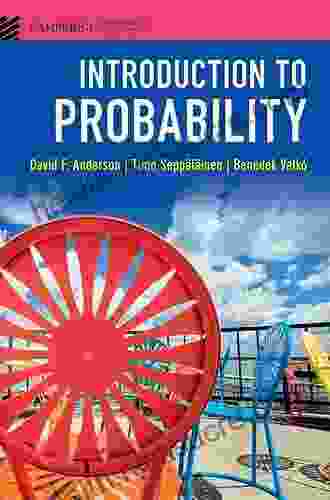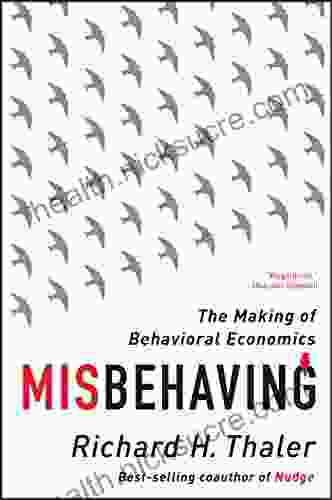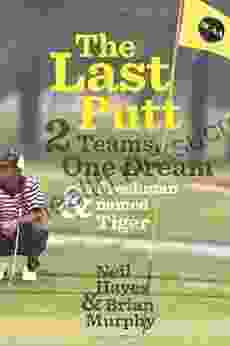Misbehaving: The Making of Behavioral Economics

4.6 out of 5
| Language | : | English |
| File size | : | 5105 KB |
| Text-to-Speech | : | Enabled |
| Screen Reader | : | Supported |
| Enhanced typesetting | : | Enabled |
| X-Ray | : | Enabled |
| Word Wise | : | Enabled |
| Print length | : | 434 pages |
Misbehaving: The Making of Behavioral Economics is a book by Richard H. Thaler, a Nobel Prize-winning economist. The book explores the history of behavioral economics, from its early beginnings to its recent rise to prominence. Thaler argues that traditional economic theory has failed to account for the irrational and often unpredictable behavior of human beings. Behavioral economics, on the other hand, takes into account the psychological and social factors that influence economic decision-making.
The History of Behavioral Economics
The roots of behavioral economics can be traced back to the early 20th century, when economists such as Herbert Simon and Daniel Kahneman began to challenge the assumptions of traditional economic theory. These economists argued that human beings are not always rational actors who make decisions in their own best interests. Instead, they are often influenced by emotions, biases, and social norms.
In the 1970s and 1980s, a new generation of economists began to develop formal models of behavioral economics. These models incorporated insights from psychology and other social sciences to explain the irrational behavior of human beings. One of the most influential of these models was the prospect theory, developed by Kahneman and Amos Tversky. Prospect theory predicts that people are more likely to take risks when they are facing losses than when they are facing gains.
The Rise of Behavioral Economics
In the 1990s and 2000s, behavioral economics began to gain wider acceptance within the economics profession. This was due in part to the work of Thaler and other economists who showed that behavioral insights could be used to explain a wide range of economic phenomena, such as the stock market bubble and the housing market crash.
In 2017, Thaler was awarded the Nobel Prize in Economics for his contributions to behavioral economics. This award helped to further legitimize the field and to bring it to the attention of a wider audience.
The Implications of Behavioral Economics
Behavioral economics has a number of implications for the way we think about economics. First, it suggests that traditional economic theory is incomplete. It fails to account for the psychological and social factors that influence economic decision-making.
Second, behavioral economics provides insights into why people often make irrational decisions. This can help us to make better decisions in our own lives and to design policies that are more effective.
Third, behavioral economics can help us to understand the causes of economic crises. By understanding the irrational behavior of investors and other economic actors, we can better predict and prevent future crises.
Behavioral economics is a new and exciting field of economics that has the potential to revolutionize the way we think about economic decision-making. By taking into account the psychological and social factors that influence our behavior, behavioral economics can help us to make better decisions and to create a more just and equitable economy.
4.6 out of 5
| Language | : | English |
| File size | : | 5105 KB |
| Text-to-Speech | : | Enabled |
| Screen Reader | : | Supported |
| Enhanced typesetting | : | Enabled |
| X-Ray | : | Enabled |
| Word Wise | : | Enabled |
| Print length | : | 434 pages |
Do you want to contribute by writing guest posts on this blog?
Please contact us and send us a resume of previous articles that you have written.
 Fiction
Fiction Non Fiction
Non Fiction Romance
Romance Mystery
Mystery Thriller
Thriller SciFi
SciFi Fantasy
Fantasy Horror
Horror Biography
Biography Selfhelp
Selfhelp Business
Business History
History Classics
Classics Poetry
Poetry Childrens
Childrens Young Adult
Young Adult Educational
Educational Cooking
Cooking Travel
Travel Lifestyle
Lifestyle Spirituality
Spirituality Health
Health Fitness
Fitness Technology
Technology Science
Science Arts
Arts Crafts
Crafts DIY
DIY Gardening
Gardening Petcare
Petcare Vincent Schilling
Vincent Schilling Brian Treanor
Brian Treanor Peggy L Chinn
Peggy L Chinn Jeff Gordon
Jeff Gordon Steve J Martin
Steve J Martin Rex L Forehand
Rex L Forehand Courtney Summers
Courtney Summers Robert Green
Robert Green Deborah Ann Davis
Deborah Ann Davis Lsatmax Lsat Prep
Lsatmax Lsat Prep Annabeth Headrick
Annabeth Headrick Claude Levi Strauss
Claude Levi Strauss Allen Dulles
Allen Dulles Rex Allen Jones Ii
Rex Allen Jones Ii Jonathan St B T Evans
Jonathan St B T Evans Giancarlo Lemmi
Giancarlo Lemmi Perry Lefko
Perry Lefko Gary Leland
Gary Leland Carlo Ancelotti
Carlo Ancelotti Jeff Brent
Jeff Brent John C Lennox
John C Lennox Marie Osmond
Marie Osmond Mike Zimmerman
Mike Zimmerman Susan Ware
Susan Ware Karen Bonnell
Karen Bonnell Rodney Ford
Rodney Ford Allen N Mendler
Allen N Mendler D C Fergerson
D C Fergerson Jeremy Evans
Jeremy Evans Rene Almeling
Rene Almeling Lynn Stafford Yilmaz
Lynn Stafford Yilmaz Frank Christianson
Frank Christianson Suzanne Alderson
Suzanne Alderson Sylvia Larsen
Sylvia Larsen Allen Everett
Allen Everett Carolyn Shearlock
Carolyn Shearlock C S Wilde
C S Wilde Linda S Jones
Linda S Jones Allen M Hornblum
Allen M Hornblum The School Of Life
The School Of Life Walter Isaacson
Walter Isaacson Marianne Williamson
Marianne Williamson Michael Shermer
Michael Shermer Vivian Gornick
Vivian Gornick Julie Schwietert
Julie Schwietert Mark Dice
Mark Dice Joosr
Joosr Chris Cannon
Chris Cannon Karen Wambach
Karen Wambach Lisa M Rose
Lisa M Rose Ronald Hutton
Ronald Hutton Mike Wallace
Mike Wallace Grant S Lipman
Grant S Lipman Justin J Exner
Justin J Exner J R R Tolkien
J R R Tolkien Selene Yeager
Selene Yeager Edwin Amenta
Edwin Amenta Maria Thompson Daviess
Maria Thompson Daviess Todd Wilbur
Todd Wilbur Dennis Jarecke
Dennis Jarecke Mian Majid Ali Afzal
Mian Majid Ali Afzal Alison Aulakh
Alison Aulakh Alistair Higham
Alistair Higham Allen O Bannon
Allen O Bannon Maurice Isserman
Maurice Isserman Shobi Nolan
Shobi Nolan Pamela Douglas
Pamela Douglas Kenji Tokitsu
Kenji Tokitsu Sportsman S Connection
Sportsman S Connection Joe Kenn
Joe Kenn Myrna Blyth
Myrna Blyth Toru Toba
Toru Toba Alistair Brownlee
Alistair Brownlee George M Johnson
George M Johnson Ed Robinson
Ed Robinson Chris Fox
Chris Fox Alison Gervais
Alison Gervais Jason Durham
Jason Durham Cy Tymony
Cy Tymony Emily Parke Chase
Emily Parke Chase David F Anderson
David F Anderson Daniel J Siegel
Daniel J Siegel Richard Kaczynski
Richard Kaczynski Brett Lee Scott
Brett Lee Scott Kelsey Banfield
Kelsey Banfield Brian Boone
Brian Boone Andrew Benfield
Andrew Benfield Allan Hall
Allan Hall Winston Churchill
Winston Churchill Ronald E Mickens
Ronald E Mickens Dan Millman
Dan Millman Brian Lopes
Brian Lopes Joel Thomas Chopp
Joel Thomas Chopp Diana Korte
Diana Korte Stephen Haddelsey
Stephen Haddelsey Allison Alexy
Allison Alexy Joe Vasicek
Joe Vasicek Jim Cheney
Jim Cheney Allan Trevor
Allan Trevor Elliot Aronson
Elliot Aronson Roy Shepard
Roy Shepard Jay Blahnik
Jay Blahnik Glenn Tinnin
Glenn Tinnin Marti Olsen Laney
Marti Olsen Laney Daniel J Levitin
Daniel J Levitin Tim Rappleye
Tim Rappleye Tom Daley
Tom Daley Tami Overhauser
Tami Overhauser Kristine Hudson
Kristine Hudson Charles J Robinson
Charles J Robinson Joseph Harkreader
Joseph Harkreader Joe Kelly
Joe Kelly Stephen R Covey
Stephen R Covey Giuseppe Mascoli
Giuseppe Mascoli Ryan Hall
Ryan Hall Segun Adebajo
Segun Adebajo Laura Randall
Laura Randall Raymond Turner
Raymond Turner Richard H Thaler
Richard H Thaler Saint Teresa Of Avila
Saint Teresa Of Avila George Buehler
George Buehler Lewis Carroll
Lewis Carroll Meritxell Castells
Meritxell Castells Sarah Grison
Sarah Grison Emily Thiede
Emily Thiede Lennard Bickel
Lennard Bickel Alison Pearlman
Alison Pearlman Jeff Burlingame
Jeff Burlingame Michael Reist
Michael Reist Michael Fullan
Michael Fullan Edmund Richardson
Edmund Richardson Kevin West
Kevin West Jonathan E Steinhart
Jonathan E Steinhart Christopher Bruhn
Christopher Bruhn Rowena Murray
Rowena Murray Joshua Elliot James
Joshua Elliot James John Bargh Ph D
John Bargh Ph D Robin Riley
Robin Riley Roy Clark
Roy Clark Emma Shelford
Emma Shelford Carl Paoli
Carl Paoli Janet E Wall
Janet E Wall Pasco Valana
Pasco Valana Arianna Brooks
Arianna Brooks Dave Pelz
Dave Pelz Kim Heacox
Kim Heacox Roy Macskimming
Roy Macskimming James Fallows
James Fallows Jean Jacques Chevron
Jean Jacques Chevron Frank Delaney
Frank Delaney Rick Johnson
Rick Johnson Aly Raisman
Aly Raisman Patrick Stewart
Patrick Stewart Frederick Mosteller
Frederick Mosteller Kara Lawrence
Kara Lawrence Karen Murphy
Karen Murphy Barbara De Angelis
Barbara De Angelis Christian Asonye
Christian Asonye Allen J Christenson
Allen J Christenson Fluent In Korean
Fluent In Korean Eddie Guerrero
Eddie Guerrero Petr Zima
Petr Zima Matthew Mccoy
Matthew Mccoy Phil Hornshaw
Phil Hornshaw Allison Tyson
Allison Tyson David Hancock
David Hancock Lynn Acton
Lynn Acton Jenara Nerenberg
Jenara Nerenberg James F Mckenzie
James F Mckenzie Andrew Kastor
Andrew Kastor John Lloyd
John Lloyd Simone Milasas
Simone Milasas Daniel Stewart
Daniel Stewart Allen G Taylor
Allen G Taylor Jim C Hines
Jim C Hines Paul J Kosmin
Paul J Kosmin Sarah P Morris
Sarah P Morris Allison Norfolk
Allison Norfolk Scott Smith
Scott Smith Trae Dorn
Trae Dorn Allison Dolan
Allison Dolan Jason Padgett
Jason Padgett Gavin Fairbairn
Gavin Fairbairn Marlin M Mackenzie
Marlin M Mackenzie Alisha J Brown
Alisha J Brown Greg Henry
Greg Henry Randy Russell
Randy Russell Gerd Gigerenzer
Gerd Gigerenzer Joanna Foley Rd
Joanna Foley Rd Sean Patrick
Sean Patrick Alison Palmer
Alison Palmer James Sieckmann
James Sieckmann Gail Steketee
Gail Steketee Amby Burfoot
Amby Burfoot Dennis Georgatos
Dennis Georgatos Paul S Auerbach
Paul S Auerbach Noor Ain
Noor Ain David Eagleman
David Eagleman Alan Watts
Alan Watts Pass Your Class
Pass Your Class Dr Nadine Sinclair
Dr Nadine Sinclair Sabatino Moscati
Sabatino Moscati Harald B Teicher
Harald B Teicher William A Haviland
William A Haviland Alison Scott Wright
Alison Scott Wright S Allen Counter
S Allen Counter Clive Cussler
Clive Cussler Kate Mcmahon
Kate Mcmahon Peter Van Der Linden
Peter Van Der Linden Kaitlyn Hill
Kaitlyn Hill Steven J Burton
Steven J Burton Tim Hodkinson
Tim Hodkinson Raychelle Cassada Lohmann
Raychelle Cassada Lohmann Milton Gussow
Milton Gussow J Richard Gott
J Richard Gott Judy Converse
Judy Converse Nick Karas
Nick Karas Don Harris
Don Harris Peter Mark Adams
Peter Mark Adams Grant Petersen
Grant Petersen Kim Liggett
Kim Liggett Beth Cavenaugh
Beth Cavenaugh Signe Pike
Signe Pike Paul Schullery
Paul Schullery Chris Lear
Chris Lear Edmund G R Kraal
Edmund G R Kraal Allan G Bluman
Allan G Bluman Pure Calisthenics
Pure Calisthenics Itzik Ben Gan
Itzik Ben Gan Annie F Downs
Annie F Downs Brenda Boyd
Brenda Boyd Victor Canning
Victor Canning Dr Danielle Ward
Dr Danielle Ward Rob Shelsky
Rob Shelsky Grace Lindsay
Grace Lindsay Susan Neiman
Susan Neiman Allison Schrager
Allison Schrager John Kavanagh
John Kavanagh W Edwards Deming
W Edwards Deming Casi Mclean
Casi Mclean Kaylee Cole
Kaylee Cole Ann C Logue
Ann C Logue William W Dressler
William W Dressler Arthur Aughey
Arthur Aughey James Ferguson
James Ferguson Dan Miller
Dan Miller Iain Gately
Iain Gately Jim Downs
Jim Downs Amy Saltzman
Amy Saltzman James Patterson
James Patterson Etienne Noumen
Etienne Noumen Novak Djokovic
Novak Djokovic Matthew Syed
Matthew Syed Michele Stanten
Michele Stanten William B Helmreich
William B Helmreich Robert Kiltz
Robert Kiltz Cate Stillman
Cate Stillman Liz Clark
Liz Clark Rhonda Huettenmueller
Rhonda Huettenmueller N B Hankes
N B Hankes Roger Bannister
Roger Bannister Maria Rickert Hong
Maria Rickert Hong Y R Davis
Y R Davis Ethem Mining
Ethem Mining Elce Junior Lauriston
Elce Junior Lauriston Shawn D Madden
Shawn D Madden Chris Chambers
Chris Chambers Allan House
Allan House Julie Morgenstern
Julie Morgenstern Jack Smith
Jack Smith Chris Lundgren
Chris Lundgren Deborah Macnamara Phd
Deborah Macnamara Phd Eric Lemarque
Eric Lemarque Thomas R Verny
Thomas R Verny Anna Costaras
Anna Costaras Sam Jefferson
Sam Jefferson Kimberly Brown
Kimberly Brown Stuart Holmes Coleman
Stuart Holmes Coleman Charlotte Runcie
Charlotte Runcie Alivia Stephens
Alivia Stephens Carla Mooney
Carla Mooney Douglas Whynott
Douglas Whynott Allen Morris Jones
Allen Morris Jones Rebecca St James
Rebecca St James Linda Martella Whitsett
Linda Martella Whitsett Robert M Sapolsky
Robert M Sapolsky Eli Saslow
Eli Saslow Kwame Onwuachi
Kwame Onwuachi Despina Meris
Despina Meris Vitalis I Valentine
Vitalis I Valentine Michaelbrent Collings
Michaelbrent Collings Jonathan Moeller
Jonathan Moeller John Shewey
John Shewey Allison Williams
Allison Williams Tiger Woods
Tiger Woods Jim Mancuso
Jim Mancuso Aliza Kelly
Aliza Kelly Nikki Solano
Nikki Solano Jared Cohen
Jared Cohen Suzanne Nottingham
Suzanne Nottingham Alicia F Lieberman
Alicia F Lieberman Cinda Williams Chima
Cinda Williams Chima Robert Penn Warren
Robert Penn Warren Gregory Cochran
Gregory Cochran Anil Seth
Anil Seth Allan Kardec
Allan Kardec Robert Taylor
Robert Taylor Josephine Perry
Josephine Perry Allison Mcdonald Ace
Allison Mcdonald Ace Franz Kellermann
Franz Kellermann John Michael Kelly
John Michael Kelly Brenda Gable
Brenda Gable Natasha Devon
Natasha Devon Dr Ron M Horner
Dr Ron M Horner Mourad Boufadene
Mourad Boufadene Jeff Hawkins
Jeff Hawkins Mary Quinlan Mcgrath
Mary Quinlan Mcgrath Mark Beauregard
Mark Beauregard Lexie Scott
Lexie Scott Dan Abrahams
Dan Abrahams Dr Fiona Mcpherson
Dr Fiona Mcpherson John Hughes
John Hughes Katy Milkman
Katy Milkman Ryan Spaeder
Ryan Spaeder Tom Kelly
Tom Kelly Aubrey Gordon
Aubrey Gordon Marc Vachon
Marc Vachon Jimena Canales
Jimena Canales Eickhel Mendoza
Eickhel Mendoza Dennis Overbye
Dennis Overbye Jon S Bailey
Jon S Bailey Jennifer Waldburger
Jennifer Waldburger Don Miguel Ruiz
Don Miguel Ruiz Lisa Marshall
Lisa Marshall The Editors Of Outside Magazine
The Editors Of Outside Magazine Mark Kistler
Mark Kistler Jim Cobb
Jim Cobb Erica Abbett
Erica Abbett Geoff Salmon
Geoff Salmon Muthukumaran Mani
Muthukumaran Mani Kate Wood
Kate Wood Kota Nozomi
Kota Nozomi Lynn Rush
Lynn Rush Michelle Nijhuis
Michelle Nijhuis Paul Green
Paul Green David M Killoran
David M Killoran Tim Baker
Tim Baker Mandi Hickman
Mandi Hickman L H Nicole
L H Nicole Monique Joiner Siedlak
Monique Joiner Siedlak Allen Stroud
Allen Stroud Holly Homer
Holly Homer Judith Mckay
Judith Mckay Norrinda Brown Hayat
Norrinda Brown Hayat Joseph Fort Newton
Joseph Fort Newton Olajumoke Adenowo
Olajumoke Adenowo Richard M Van Gaasbeek
Richard M Van Gaasbeek Sid Roth
Sid Roth John Macinnes
John Macinnes W E Fairbairn
W E Fairbairn Alina A Von Davier
Alina A Von Davier Tami Asars
Tami Asars Allison Arevalo
Allison Arevalo Helen Macdonald
Helen Macdonald Henry Cloud
Henry Cloud John Bul Dau
John Bul Dau Kevin Leman
Kevin Leman Jennifer E Smith
Jennifer E Smith Neely Spence Gracey
Neely Spence Gracey Bryan Goodwin
Bryan Goodwin Jacqueline H Wolf
Jacqueline H Wolf Jen Torborg
Jen Torborg Peter Hollins
Peter Hollins Milt Rosko
Milt Rosko Leonard Shlain
Leonard Shlain Lydia Sherrer
Lydia Sherrer The Dark Lords
The Dark Lords Mark F Sohn
Mark F Sohn Laerke Recht
Laerke Recht Mary Bergin
Mary Bergin Catherine Gildiner
Catherine Gildiner Kenneth Igiri
Kenneth Igiri Konnie Wong
Konnie Wong Alistair Cooke
Alistair Cooke Linda Barrett Osborne
Linda Barrett Osborne Maria Hannay
Maria Hannay Eric Naguski
Eric Naguski Christina Hoff Sommers
Christina Hoff Sommers Philip Gosse
Philip Gosse Sharon Weinberger
Sharon Weinberger Lionel Cruzille
Lionel Cruzille Liz Evers
Liz Evers Joe Sparrow
Joe Sparrow Alicia Jasinska
Alicia Jasinska Jim Rahtz
Jim Rahtz Bright Summaries
Bright Summaries Ben Greenfield
Ben Greenfield Daniel Mendelsohn
Daniel Mendelsohn Travis Jeffery
Travis Jeffery Neil Hayes
Neil Hayes Alicia Thomas Woolf
Alicia Thomas Woolf Teri Moser Woo
Teri Moser Woo Debi Pearl
Debi Pearl Tim Roughgarden
Tim Roughgarden P J Richards
P J Richards Rachel Caine
Rachel Caine Allen R Angel
Allen R Angel Allan Phillips
Allan Phillips Suzanne O Sullivan
Suzanne O Sullivan Bogdan Ivanov
Bogdan Ivanov Robbin Gregory
Robbin Gregory Godfrey Higgins
Godfrey Higgins Felix Marks
Felix Marks Ken Cohen
Ken Cohen Carlos Castaneda
Carlos Castaneda Amy Wenzel
Amy Wenzel Meredith Russo
Meredith Russo Anna Leinberger
Anna Leinberger Molly Forbes
Molly Forbes Hilda Jarman Muir
Hilda Jarman Muir William Stott
William Stott Eric Newby
Eric Newby Chris Mulder
Chris Mulder Robin Stevenson
Robin Stevenson Greg Strandberg
Greg Strandberg Mary Elizabeth O Brien
Mary Elizabeth O Brien Andrie De Vries
Andrie De Vries Grace E Stewart
Grace E Stewart Allen Carr
Allen Carr Mara Krechevsky
Mara Krechevsky Ron Merly
Ron Merly Scott Graham
Scott Graham Priya Ardis
Priya Ardis Bill Horn
Bill Horn Alister E Mcgrath
Alister E Mcgrath Carrot Quinn
Carrot Quinn Somaiya Daud
Somaiya Daud Frederick Courteney Selous
Frederick Courteney Selous Carla Simpson
Carla Simpson Debra L Martin
Debra L Martin Allistair Mccaw
Allistair Mccaw Jdmission Senior Consultants
Jdmission Senior Consultants Linda Greenlaw
Linda Greenlaw Jeffrey E Young
Jeffrey E Young Matthieu Auzanneau
Matthieu Auzanneau Nick Riley
Nick Riley Bruce Tremper
Bruce Tremper Douglas Nicholas
Douglas Nicholas Tress Bowen
Tress Bowen Bret Hart
Bret Hart Stephen E Flowers
Stephen E Flowers Julie Currin
Julie Currin Alexandra Amor
Alexandra Amor Kathleen Bachynski
Kathleen Bachynski Joel S Owen
Joel S Owen Theodore B Sauselein
Theodore B Sauselein Karen Blumenthal
Karen Blumenthal Apryl Baker
Apryl Baker Leah Vanderveldt
Leah Vanderveldt Sheena Byrom
Sheena Byrom Jim Bell
Jim Bell Ashley D Kendall
Ashley D Kendall Susan Kuklin
Susan Kuklin Alison Lighthall Miller
Alison Lighthall Miller Wendelin Van Draanen
Wendelin Van Draanen Kate Clifford Larson
Kate Clifford Larson Jorge Muniz
Jorge Muniz Charles Conn
Charles Conn Matt Hart
Matt Hart P Schreiber
P Schreiber Pottermore Publishing
Pottermore Publishing C Calvin Jones
C Calvin Jones Linda A Curtis
Linda A Curtis Ian Westermann
Ian Westermann Bobby Clampett
Bobby Clampett Marc Bubbs
Marc Bubbs Tom Watson
Tom Watson Robert S Witte
Robert S Witte Nevin Martell
Nevin Martell Stuart A Kauffman
Stuart A Kauffman Bill Varney Jr
Bill Varney Jr Bill Hendricks
Bill Hendricks Eugen Herrigel
Eugen Herrigel James Kipling
James Kipling Alexander Clarke
Alexander Clarke John Novosel Jr
John Novosel Jr Gary Sizer
Gary Sizer Valerie Gilpeer
Valerie Gilpeer Danica G Hays
Danica G Hays Chip Coffey
Chip Coffey Randy Olson
Randy Olson Meredith L Jacobs
Meredith L Jacobs 10th Edition Kindle Edition
10th Edition Kindle Edition Naomi Kokoricha
Naomi Kokoricha Paul D Brinkman
Paul D Brinkman David Hurst Thomas
David Hurst Thomas Greg Moran
Greg Moran Judith Rich Harris
Judith Rich Harris Jennifer Louden
Jennifer Louden Tom Babin
Tom Babin
Light bulbAdvertise smarter! Our strategic ad space ensures maximum exposure. Reserve your spot today!

 Salman RushdieThe Night Stalker: A Chilling Journey into the Heart of a Serial Killer's...
Salman RushdieThe Night Stalker: A Chilling Journey into the Heart of a Serial Killer's...
 Billy FosterUnraveling the Enchantments of The Pendragon Codex: A Literary Journey into...
Billy FosterUnraveling the Enchantments of The Pendragon Codex: A Literary Journey into...
 Duane KellyEthics in Behavior Analysis: Jon Bailey's Groundbreaking Work and Its Impact...
Duane KellyEthics in Behavior Analysis: Jon Bailey's Groundbreaking Work and Its Impact... Italo CalvinoFollow ·18k
Italo CalvinoFollow ·18k Marc FosterFollow ·10k
Marc FosterFollow ·10k Raymond ParkerFollow ·10k
Raymond ParkerFollow ·10k Blake KennedyFollow ·4.5k
Blake KennedyFollow ·4.5k Benjamin StoneFollow ·16.5k
Benjamin StoneFollow ·16.5k Jackson BlairFollow ·7k
Jackson BlairFollow ·7k Demetrius CarterFollow ·7.8k
Demetrius CarterFollow ·7.8k Hudson HayesFollow ·13.8k
Hudson HayesFollow ·13.8k

 Dominic Simmons
Dominic SimmonsFierce Attachments: A Memoir by Vivian Gornick - A...
Vivian Gornick's Fierce Attachments is a...

 Edison Mitchell
Edison MitchellPrimer for America's Favorite Wilderness: A Comprehensive...
In the vast...

 Jan Mitchell
Jan MitchellIntroduction to Probability: A Comprehensive Guide for...
Probability is a crucial branch of...

 Chuck Mitchell
Chuck Mitchell100,000 Mile Journey Into the Heart of America
In 2016, I embarked on a...

 Eddie Bell
Eddie BellHow Schools Around the World Are Inspiring Greatness One...
Education is the key...

 Quentin Powell
Quentin PowellJourney into the Heart of Alaska: Exploring the Majestic...
Alaska, the largest...
4.6 out of 5
| Language | : | English |
| File size | : | 5105 KB |
| Text-to-Speech | : | Enabled |
| Screen Reader | : | Supported |
| Enhanced typesetting | : | Enabled |
| X-Ray | : | Enabled |
| Word Wise | : | Enabled |
| Print length | : | 434 pages |






